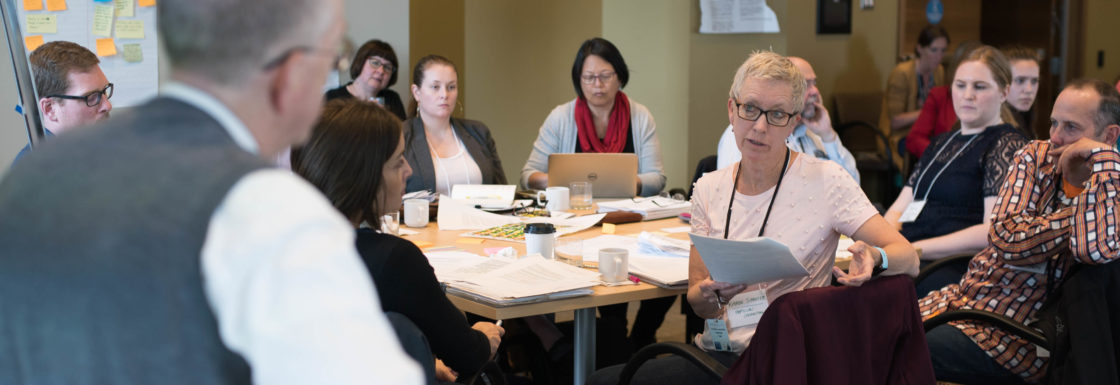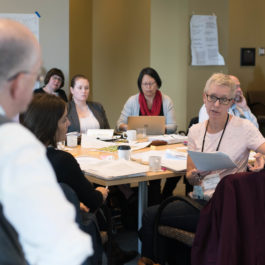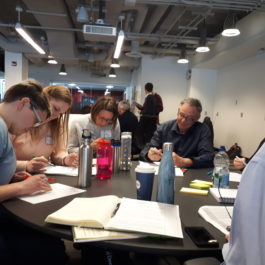Climate Outreach & Pembina Institute: The Alberta Narratives Project

Projects Sponsor
There is nothing inherently progressive or conservative about energy and climate change, yet it is one of the most deeply polarizing issues of our time. Surveys show that attitudes towards climate change and related policy in Alberta have become inextricably linked with wider concerns of political and occupational identity.
The Alberta Narratives project is a community-based initiative to seek ways of talking about climate and energy that reflect the shared values and identities of Albertans and provide a more open and constructive basis for conversation.
The project was co-convened by the Alberta Ecotrust Foundation and Pembina Institute, including Julia-Maria Becker, Director Clean Economy, Pembina Institute, and Pat Letizia, Executive Director, Alberta Ecotrust Foundation. The project was managed by Amber Bennett as part of Climate Outreach’s Global Narratives Project, a collaborative initiative to train national partners to test and develop climate change communications that speak to the shared values and cultural identity of their community.
The project launched in March 2018 with a two-day training workshop for partners and other interested members of the Alberta community.
Prior to the work, several climate communication community events were held with senior leaders in Calgary and Edmonton with international expert George Marshall, co-founder of Climate Outreach, which garnered significant interest and trust in Climate Outreach’s work.
Dozens of individuals and organizations hosted 55 Narrative Workshops around Alberta, making this one of the largest public engagements of its kind. The project team spoke with a spectrum of Albertans including farmers, oil sands workers, energy leaders, business leaders, youth, environmentalists, New Canadians and many more.
The methodology developed by Climate Outreach, a narrative-style workshop, is an academically-based form of qualitative research that explores language and narrative around climate change, energy and possible solutions. It has been used to conduct research with a very wide range of audiences including the five major faith groups, audiences across the political spectrum – particularly people with conservative values – and in large-scale communication campaigns in Wales and India.
Narrative-style workshops are based on robust social science and designed to allow participants to overcome climate silence and engage in conversations about climate change and energy and respond to messaging in their own terms. The methodology that distinguishes the Narrative Workshops from other forms of focus group research includes the use of a structure and format that promotes peer-to-peer dialogue, as well as grounding the dialogue in participants’ values and identity, these being the source attitudes.
Approximately 50 collaborating organizations went on to conduct narrative-style workshops with members of their key audiences, engaging upwards of 500 Albertans. Collaborators reconvened for a second skill-building analysis workshop, and Climate Outreach drew on the full body of research to prepare practical recommendations and two reports. This process unfolded over four months with the results being shared widely with key stakeholders and decision-makers through a published report and guidebook that have been shared widely across Alberta and Canada, inspiring art, book clubs, communication campaigns – and most importantly, new climate conversations.
A launch as well as webinars and face-to-face workshops and presentations were held and will continue into the near future.
Unlike other methods, the ANP is a new collaborative social research model that invests in the skills and capacity of Albertan organizations and makes high-quality research affordable. By training Albertans to design and conduct research – and perhaps more importantly to listen closely and attentively to their stakeholders – the ANP is a transformative initiative that will serve Alberta well beyond the extent of this project.
Now this is how you start a conversation.


















